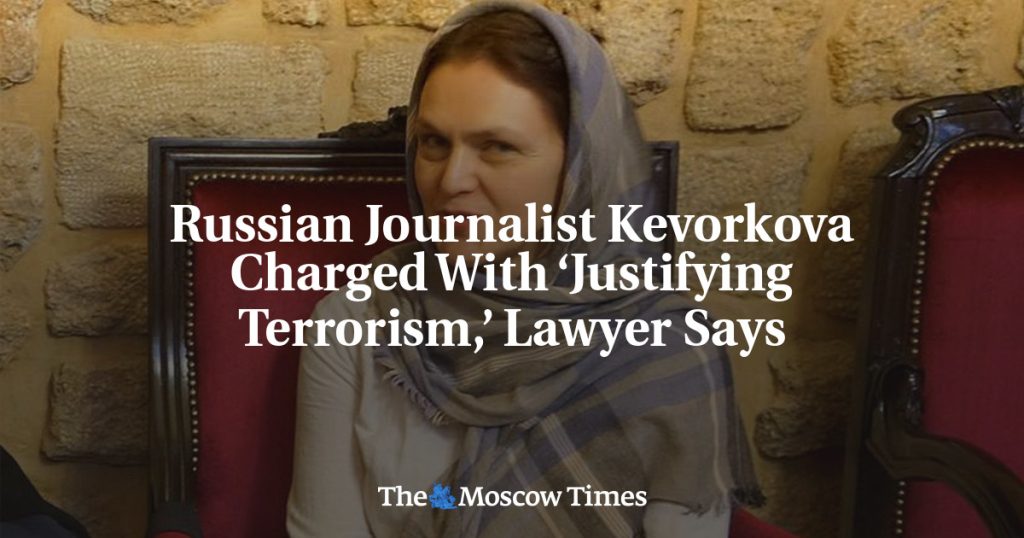Russian journalist Nadezhda Kevorkova has been charged with “justifying terrorism” by Russian law enforcement authorities due to posts she made on social media. Kevorkova, who is a war correspondent, author, and filmmaker, has worked for various media outlets and currently runs a Telegram channel focused on news about the Israel-Hamas conflict. Her lawyer, Kaloy Akhilgov, confirmed that police searched Kevorkova’s Moscow apartment, took her into custody, and charged her with the offense.
Akhilgov shared that Kevorkova was detained and would be transferred to a temporary detention center, with pre-trial detention expected to take place the following day. The charges against Kevorkova are related to her social media posts about the Taliban in 2021 and Islamic militant attacks in Russia’s North Caucasus. If convicted of justifying terrorism, she could face up to seven years in prison. Reports from pro-Kremlin media indicated that posters with messages like “They’re Not Terrorists” and “It’s Better to Protest” were found during the search of Kevorkova’s apartment.
Kevorkova’s son, Vasily Polonsky, who is an independent video journalist based in Moscow, maintained his mother’s innocence, stating that she is not guilty of any crime as she is a journalist. Her ex-husband, journalist Maxim Shevchenko, also defended her by denying the allegations of justifying terrorism. Despite the charges brought against her, Kevorkova has a background in reporting on conflicts in the Middle East and Russia’s North Caucasus, working for both Novaya Gazeta and RT, and engaging in documentary filmmaking.
The case against Kevorkova highlights ongoing concerns about freedom of the press and freedom of expression in Russia, particularly when it comes to covering sensitive topics such as terrorism. The charges of justifying terrorism raise questions about the boundaries of journalistic freedom and the potential repercussions for reporters who cover controversial or politically charged issues. As a journalist with experience in conflict reporting, Kevorkova’s situation underscores the risks faced by those who navigate complex and volatile environments to inform the public.
The arrest and charges against Kevorkova have sparked reactions from the media community, with many expressing concern about the implications for press freedom in Russia. International organizations and human rights groups have also criticized the crackdown on journalists and called for Kevorkova’s release. As the case unfolds, it will be important to monitor how the Russian authorities handle the investigation and trial, as well as the broader implications for media freedom and the protection of journalists’ rights in the country.
In response to the charges against Kevorkova, her supporters have rallied behind her, highlighting her contributions as a journalist and advocating for her rights. The case has drawn attention to the challenges faced by journalists in Russia and the importance of defending press freedom in the face of government censorship and repression. Kevorkova’s case serves as a reminder of the risks associated with independent journalism in environments where reporting on sensitive issues can lead to legal consequences. It also underscores the vital role of journalists in providing accurate and objective information to the public, even in challenging circumstances.















